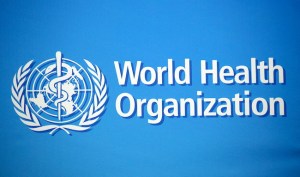The World Health Organisation (WHO) on Friday raised concern about the potential economic toll of Antimicrobial Resistance (AMR) if left unchecked.
The United Nations health agency the situation could cause Nigeria and low- income countries a reduction in Gross Domestic Product (GDP) of up to four percent by 2030.
The Coordinator for One Health in the WHO, Dr. Laxmikant Chavan, stated this during a two-day training initiative for journalists in Abuja.
Chavan said the AMR could push an estimated 28 million people into extreme poverty globally and exacerbate existing socio-economic challenges.
He said: “The economic toll of AMR for Nigeria and other low- and middle-income countries could lead to a reduction in GDP of up to four percent by 2030.
“AMR is already affecting Nigeria, like the outbreaks of diphtheria and fungal infections resistant to multiple treatments.
“Without addressing AMR, achieving global health targets will become increasingly difficult
“Low and middle-income countries like Nigeria stand to suffer the most, where healthcare costs could skyrocket and millions of people could be pushed into extreme poverty.”
READ ALSO: Nigeria’s GDP rises to 2.51% in Q2 2023
The WHO official said Nigeria with 64,500 AMR-related deaths in 2019, is among the hardest-hit countries, and the figures are expected to rise unless swift action is taken.
Chavan called for investments in AMR initiatives, saying for every dollar invested, the estimated return could be 13 dollars in health and economic benefits.
He advised policymakers and stakeholders to prioritise AMR to avert the looming global health and economic crises.
He said AMR played a critical role in hindering the achievement of the Sustainable Development Goals (SDGs), particularly SDG 3, which focuses on health and well-being.
“Without significant investment and global collaboration, AMR will soon surpass diseases like malaria, HIV, and TB in terms of its public health impact,” the WHO official added.
Chavan said that the World Health Assembly and United Nations General Assembly had agreed to reduce AMR-related deaths by 10 percent by 2030.
The post Antimicrobial Residence will reduce Nigeria’s GDP by 4% if… – WHO appeared first on Latest Nigeria News | Top Stories from Ripples Nigeria.









